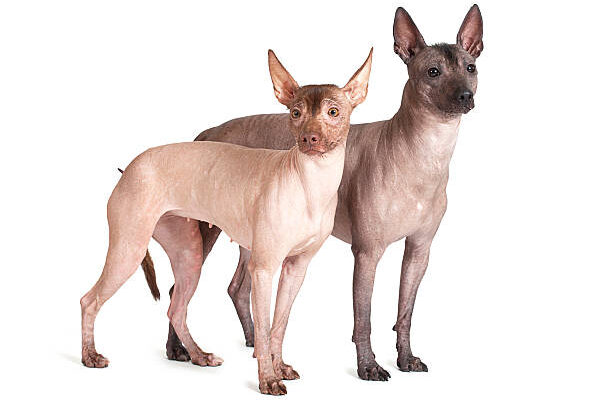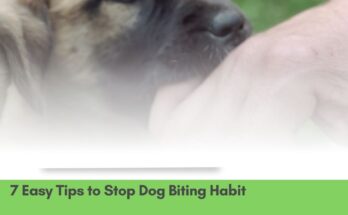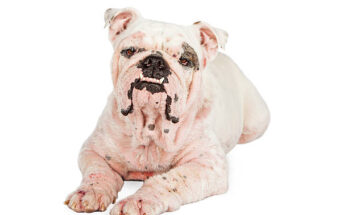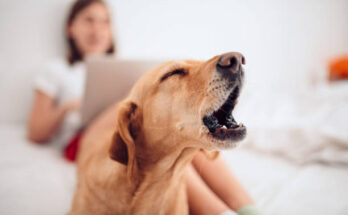Introduction
As a seasoned dog owner for over 15 years, I’ve had the pleasure of sharing my life with various canine companions, each with their own unique traits and quirks.
Recently, I found myself intrigued by a lesser-known breed that has captured the fascination of dog enthusiasts worldwide: the Egyptian Hairless Dog.
In this article, I aim to delve into the captivating history, Habits, Health Issues and care requirements of this enigmatic breed, drawing upon my years of experience as a dog owner and incorporating valuable insights into the Egyptian Hairless Dog’s suitability as a pet.
8 Best habits about Egyptian hairless dog
- Low Shedding
Egyptian hairless dogs, also known as Pharaoh Hounds, have minimal to no shedding, making them ideal for individuals with allergies or those who prefer a cleaner home environment.
- Cleanliness
Due to their lack of fur, Egyptian hairless dogs are relatively easy to keep clean.
- Affectionate Nature
These dogs are recognized for their loving attitude towards their owners. They frequently establish close connections with their families and relish moments of cuddling and snuggling.
- Intelligence
Egyptian hairless dogs are intelligent animals that respond well to training. With consistent training and positive reinforcement, they can grasp a wide range of commands and tricks.
- Active Lifestyle
Despite their elegant appearance, Egyptian hairless dogs are energetic and require regular exercise to stay happy and healthy.
Taking them for walks, engaging in play sessions, or participating in canine sports can fulfill their need for physical activity.
- Loyalty
Pharaoh Hounds are known for their loyalty and devotion to their families. They are often protective of their loved ones and can make excellent watchdogs.
- Adaptability
These dogs can adapt well to various living situations, whether it’s a spacious home with a yard or a cozy apartment, as long as their exercise needs are met.
- Minimal Grooming
These dogs are adaptable to different living environments, whether it’s a large home with a yard or a smaller apartment, provided their exercise requirements are fulfilled.
However, it’s essential to regularly check their skin for any signs of irritation or sunburn and provide appropriate protection when necessary.
Also Read,
- English Bulldog Eye Problems – Symptoms And Treatment
- Do French Bulldogs Bark A Lot – Complete Answer
- Is Chicken Not Good For French Bulldogs?
10 Health Issues That Egyptian Hairless Dog may be prone to
- Skin Sensitivity
Due to their lack of fur, Egyptian hairless dogs are more susceptible to skin irritations, sunburn, and other dermatological issues. Regular skincare routines and sun protection are essential.
- Dental Problems
Dental issues such as plaque buildup, gum disease, and tooth decay can occur in Egyptian hairless dogs if proper dental care, including regular brushing and dental check-ups, is not maintained.
- Heat Sensitivity
Because of their lack of insulation from fur, Egyptian hairless dogs are more sensitive to extreme temperatures, especially heat.
It’s crucial to keep them cool and hydrated, especially during hot weather.
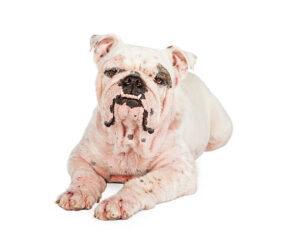
- Allergies
Some Egyptian hairless dogs may develop allergies to environmental factors such as pollen, dust, or certain foods.
Allergy symptoms can manifest as skin rashes, itching, or gastrointestinal issues.
- Joint Problems
Like many medium to large-sized breeds, Egyptian hairless dogs can be prone to joint issues such as hip dysplasia or patellar luxation.
Maintaining a healthy weight and providing appropriate exercise can help mitigate these problems.
- Eye Conditions
Certain eye conditions, including progressive retinal atrophy (PRA), cataracts, and dry eye, may occur in Egyptian hairless dogs.
Regular eye exams can help detect and manage these issues early.
- Heart Disease
Some Egyptian hairless dogs may be predisposed to certain heart conditions, such as mitral valve disease or dilated cardiomyopathy.
Regular veterinary check-ups and heart screenings are essential for early detection and management.
- Thyroid Disorders
Hypothyroidism, an underactive thyroid gland, can occur in Egyptian hairless dogs and may lead to symptoms such as weight gain, lethargy, and skin problems.
Blood tests can diagnose and monitor thyroid function.
- Seizures
Epilepsy, a neurological disorder characterized by recurrent seizures, can affect Egyptian hairless dogs.
Seizures may vary in frequency and severity, and medication may be necessary to manage the condition.
- Nutritional Needs
Egyptian hairless dogs may have specific nutritional requirements, especially to support their skin health and metabolism.
A balanced diet tailored to their age, size, and activity level is essential for overall well-being.
Conclusion
The Egyptian Hairless Dog stands as a testament to the enduring bond between humans and dogs throughout history.
With its fascinating origins, distinctive characteristics, and gentle disposition, this breed offers a unique companionship experience for dog lovers seeking something out of the ordinary.
Whether you’re drawn to its regal appearance or intrigued by its ancient lineage, the Egyptian Hairless Dog is sure to leave a lasting impression on anyone fortunate enough to share their life with one.
Also Read,

